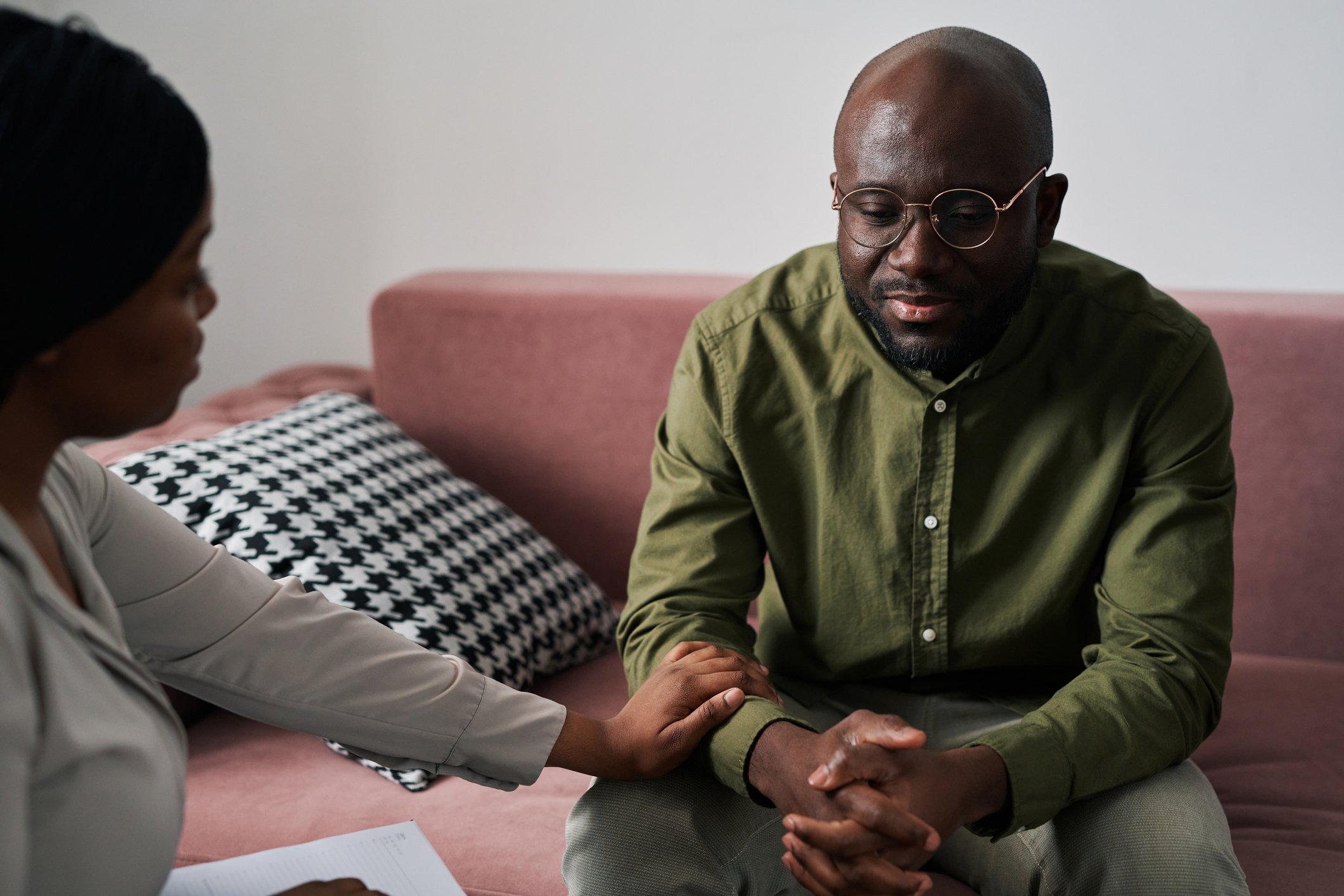When people suffer the death of a loved one, anxiety and other extreme reactions are natural. Feeling depressed or numb can be normal too. There’s no one way to feel about loss, and no right way to work through a period of bereavement.
"We all will grieve differently,” said Dr. Jonathan Shepherd, board president of the Black Mental Health Alliance. “Everybody will experience grief, but how you respond is tailor-made to your own individual experience. You can’t tell a grieving person just to pray it away or say, ‘You should be over it by now.’”
Grieving can have physical symptoms. The body responds to trauma with a rush of hormones, which can bring on headaches, fatigue, dry mouth, stomach pain and loss of sleep or appetite. The stress can literally cause chest pains and shortness of breath. If it feels like a heart attack, treat it that way and call 911, because your heart truly may be having problems pumping blood. Fortunately, this is treatable. You can mend a broken heart.
Fluid Stages of Grief May Catch You by Surprise
The emotions of grief can be a lot to handle too. Your mind is trying to process them or shield you from the pain. You might have heard about five stages of grief—denial, anger, guilt, depression and acceptance. These feelings can all well up for any loss, but not necessarily in a certain order. “It is fluid, not chronological,” Shepherd said. “And it will hit you when you at least expect it. You'll be angry about something and you don't even know why.”
Anxiety or depression may keep returning as well. You’ll always have feelings about someone you’ve lost, and death is not the end of that relationship. Repeated exposure to violence, either personally or in the news, can make people more upset or more resigned when personal loss strikes. Bereavement is the time to find out how your life has changed and make space for everything that comes next.
The funeral can start you on your way to talking through the grief. Family members and others touched by someone’s life understand the experience in a way that others can’t. By sharing their reactions, they help each other deal with their pain.
Support groups, ministers, grief counselors and trusted friends can keep the conversation going. “When our pastor's wife died suddenly, we had a group session where we invited everybody from the congregation for training on grief,” Shepherd said. “Some just needed a place to talk about how they were feeling. Others needed a second or third session, or one-on-one counseling.”
Therapy, Friendship Provide Sensitive Ears
If grief gets in the way of your daily life, a professional therapist can give you a confidential way to share feelings of anxiety or depression and better ways to manage your grief. A counselor can help if you feel stuck or spending time with others doesn’t make you feel better. Finding the right therapist can be difficult, especially since minorities are under-represented in the profession—for instance, the American Psychological Association says only 3% of practitioners are Black.
"You may be hesitant, but you don't have to have someone who looks like you to trust them," Shepherd said. “You need someone who will listen. Teach them what is important to you, then they will work through with you to manage the grieving process.” Wellness organizations such as Hurdle and the Open Path collective focus on people of color. When time or distance is a problem, telehealth sessions or apps such as Better Help are practical choices.
To help people through grieving, try not to compare your experience to theirs. Tell them you’re there to listen, then just ask questions and show that you care. Check in them and offer practical help, including simple things like cleaning up or preparing meals.
"Sometimes, just pick up the phone and say, ‘If you want me to, I'll just come and sit with you, or spend the day with you however you want. I'm at your disposal. I'm here for you,’" Shepherd said. “You don’t fully understand, so don't say what you don't mean. Just stop what you’re doing and be there.”
Zing Health can give referrals for licensed therapist and assist community wellness programs and health ministries. Drop us a line from the form on this page or call 1-844-946-4446 (TTY 711).




